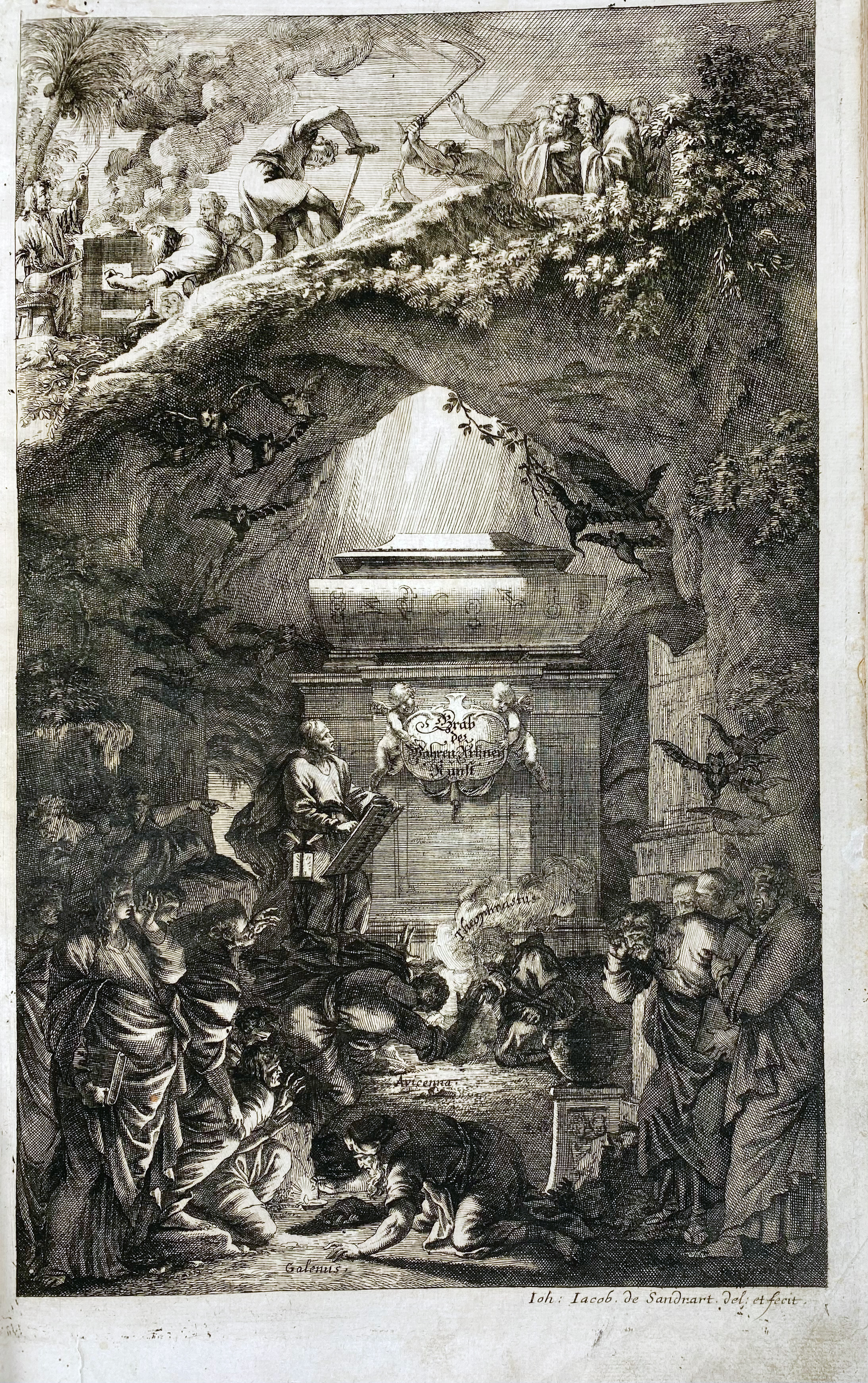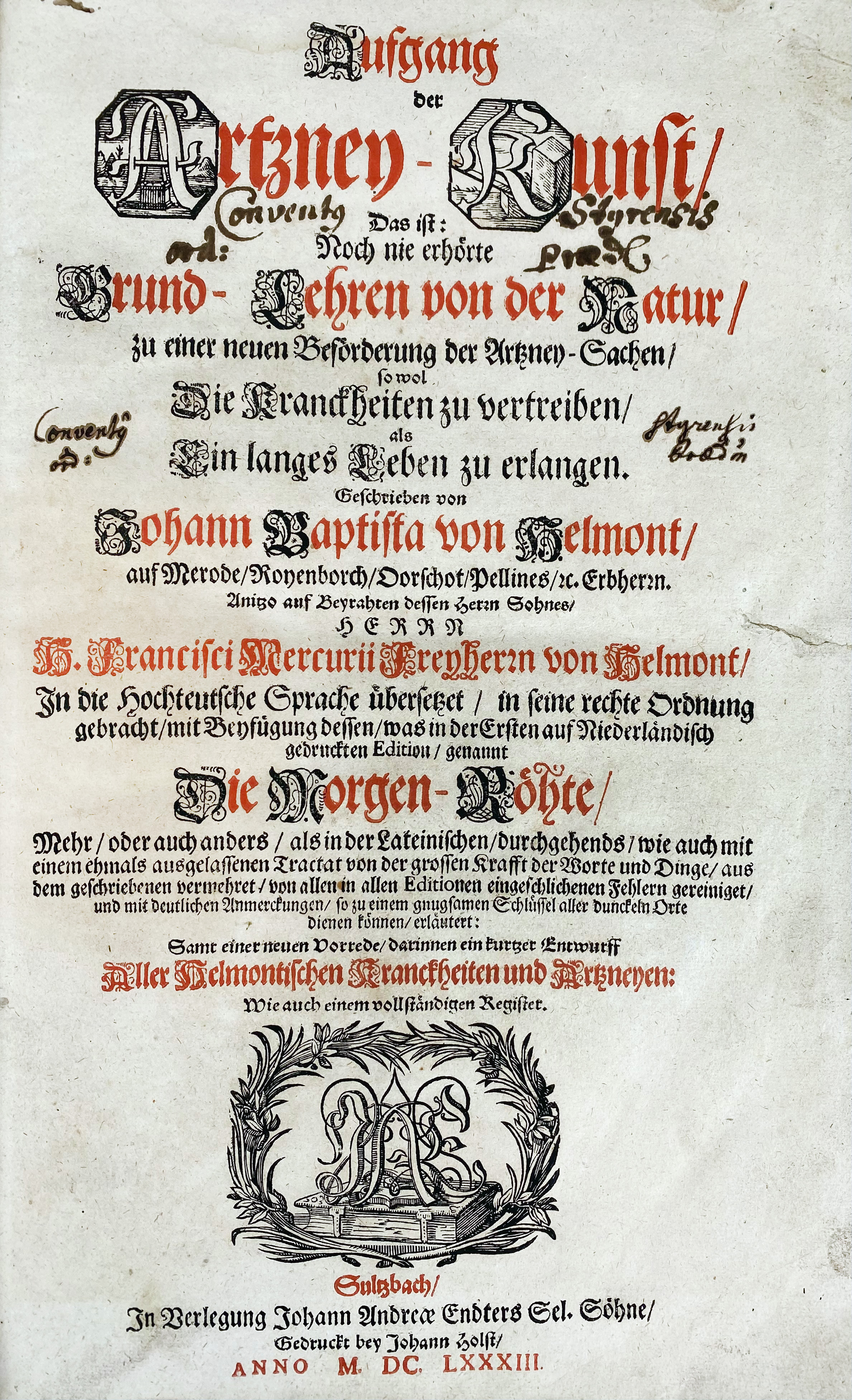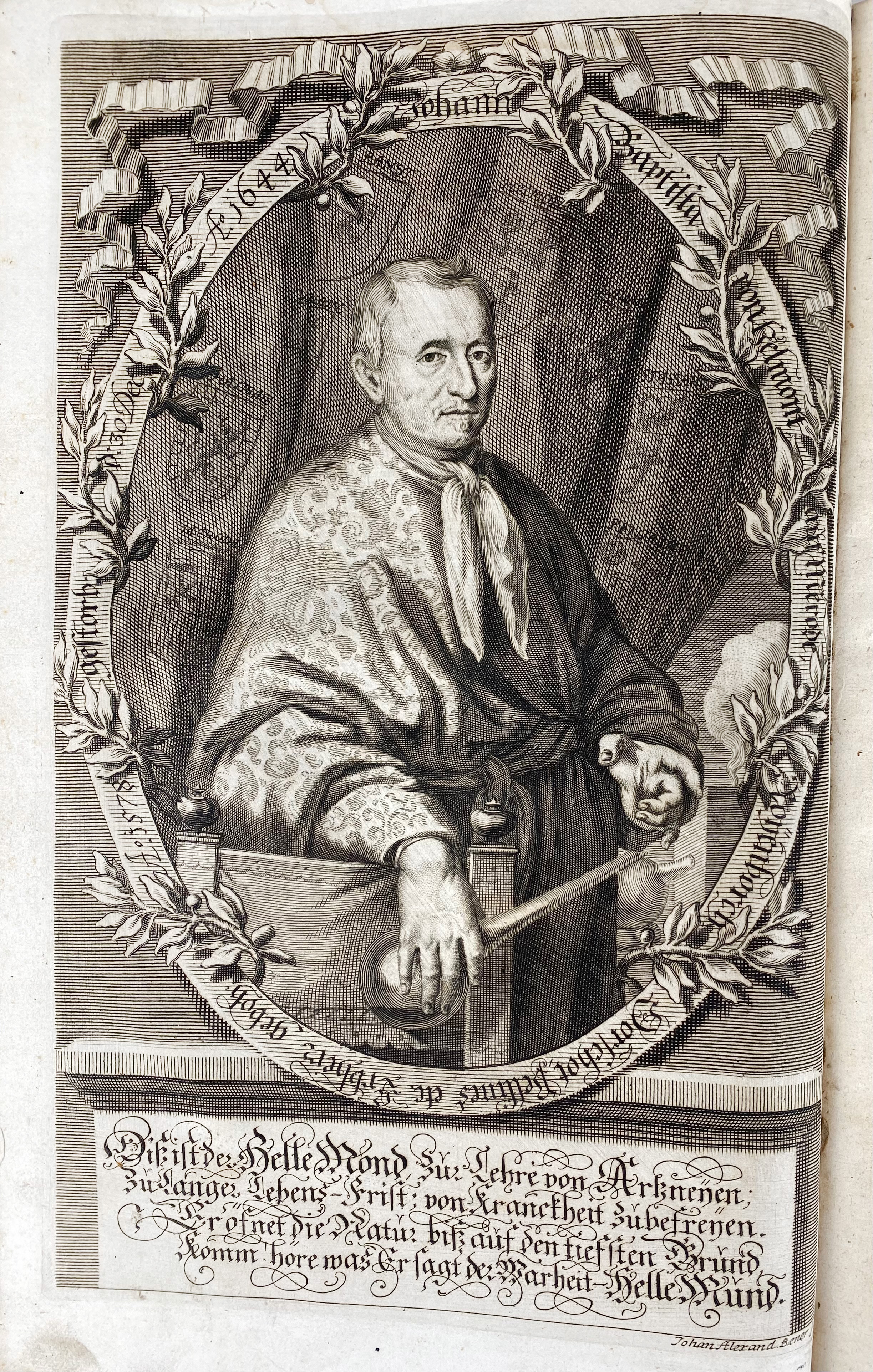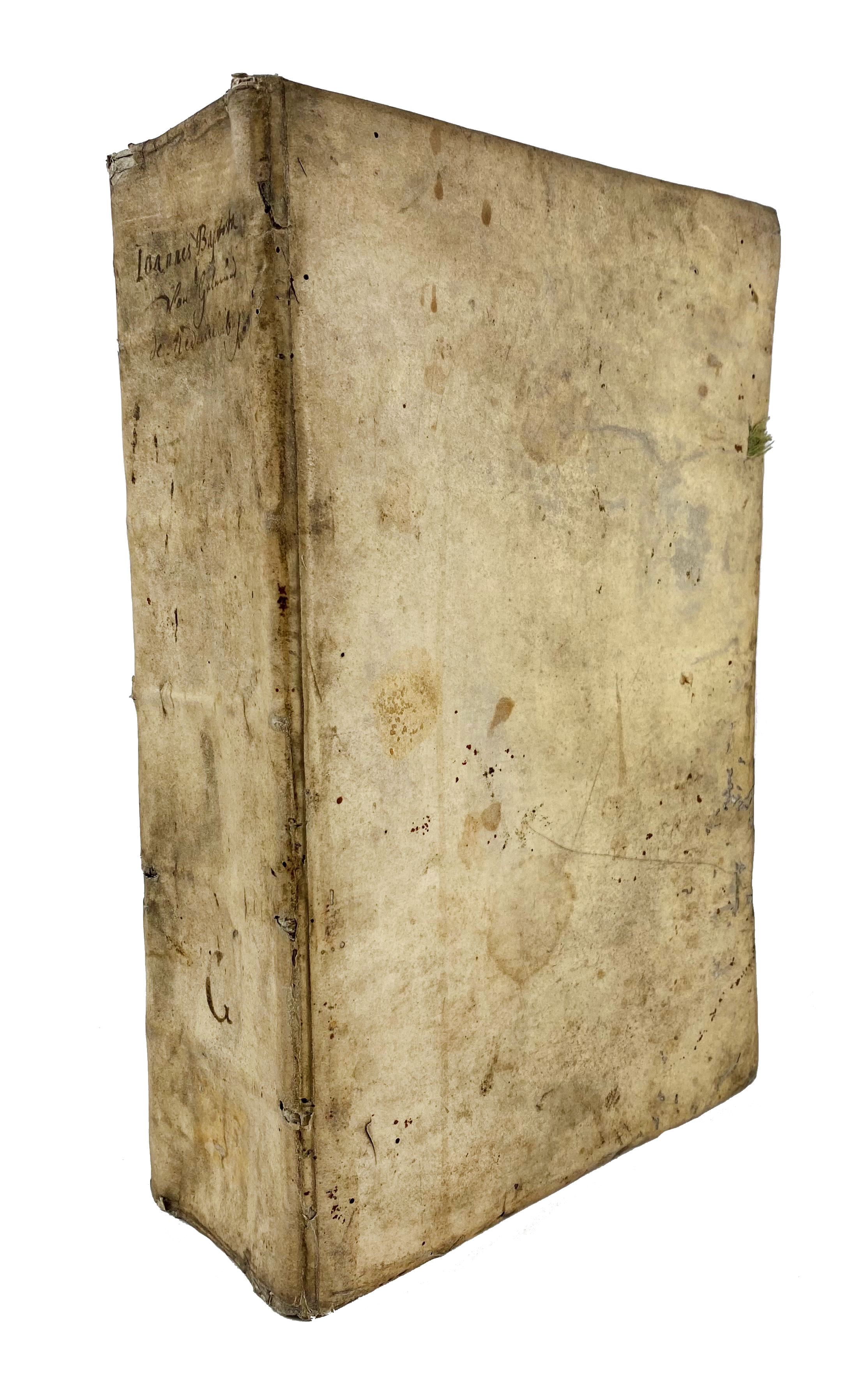Lot 1115
1115
HELMONT, J.B. v. Aufgang der Artzney-Kunst, Das ist: Noch nie erhörte Grund-Lehren von der Natur, zu einer neuen Beförderung der Artzney-Sachen, so wol Die Kranckheiten zu vertreiben, als ein langes Leben zu erlangen. Sulzbach, J.A. Endter, 1683. (32), 1270 (recte 1272), (2), (60) pp. W. engr. front. by J.J. de Sandrart & engr. portr. of the author by J.A. Börner, ti. printed in red & black. Fol. Cont. vellum. (Binding stained & sl. worn at extremities, ties lacks, first pp. w. finger stains, some tiny marg. wormholes, ownership notes in old hand on endpapers, occas. light brown spotting).
Johannes Baptista van Helmond (c. 1577-1644) was one of the founders of biochemistry. He was the first to realize the physiological importance of ferments and gases, and indeed invented the word "gas". Helmont published very little during his life. The above work is the first German translation of a collection of his writings, issued by his son, Franz Mercurius (Ortus medicinae, 1648). - PMM, 135 (Lat. ed.): "'The Birth of Medicine' (...) is our chief source for the discoveries of Helmont with regard to chemical nature of living processes. (...) Many of Helmont's general principles were derived from those of his master, Paracelsus. Like Paracelsus he did not confine his studies to specific limited fields; his outlook was universal. He sought a cosmological system and a unified view of natural science which would embrace all phenomena. His metaphysics and religion led him to abandon scholastic forms of thinking, and thence, by abdjuring theoretical speculation, he was brought to regard experiment and empiricism as the main paths of knowledge. Although he was inclined to mysticism, he nevertheless became a remarkable scientific investigator and made significant contributions to the progress of chemistry and medicine." - VD17 12:169658U; Dünnhaupt 2381, 17; Ferguson I, 380; Wellcome III, 242.€ 400
result € 320
Back



